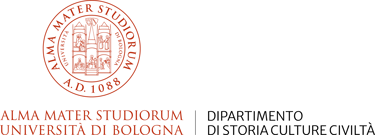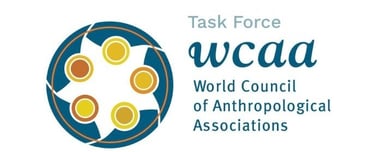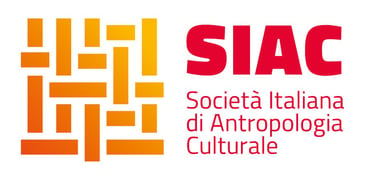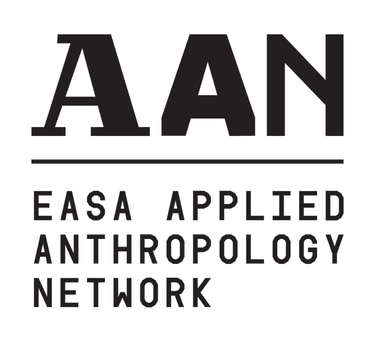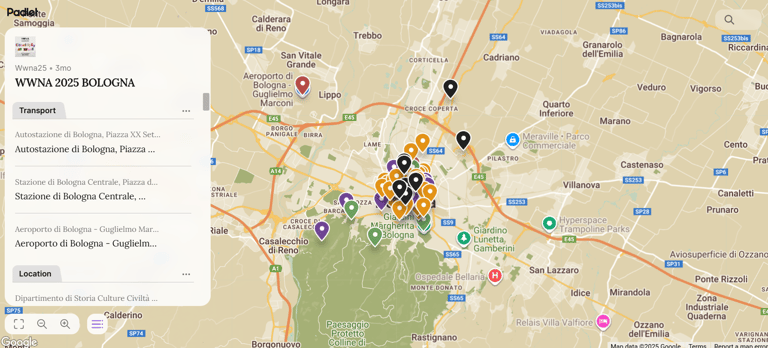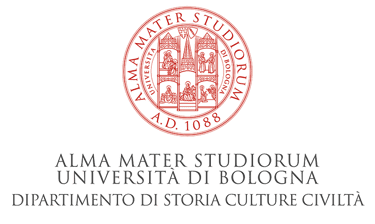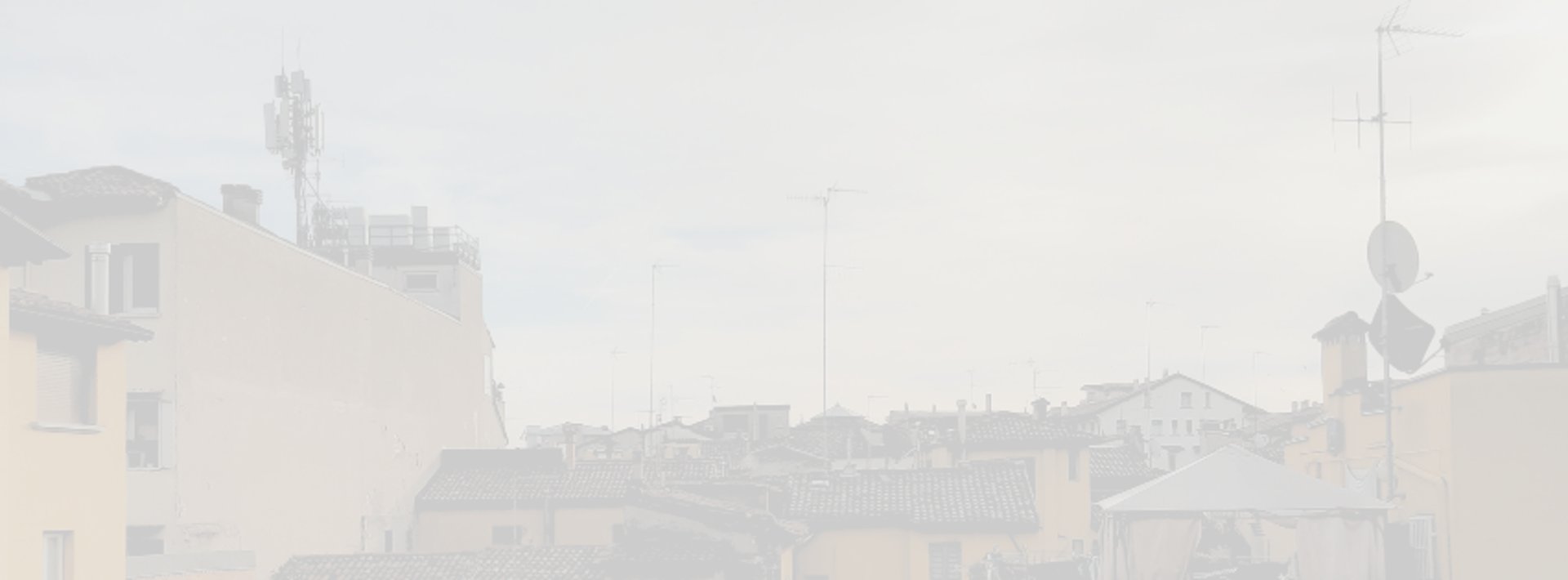
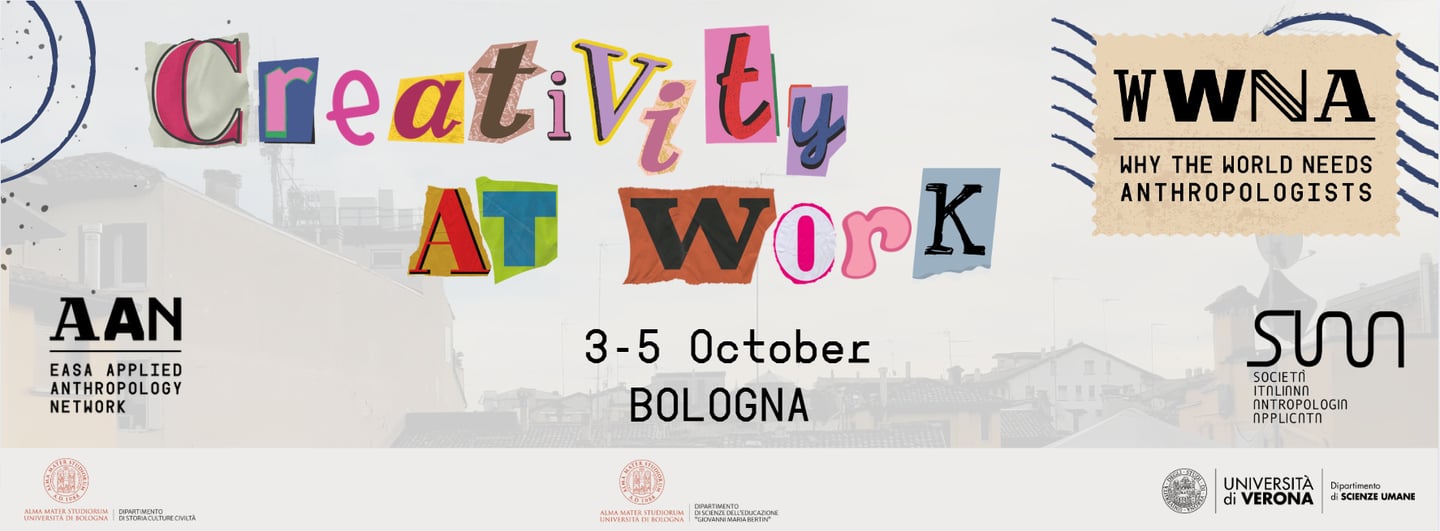


Why the World Needs Anthropologists 2025 will take place in Bologna (Italy) from the 3rd to the 5th of October. The event is co-organised by the Department of History and Cultures (local host of the event at Bologna University), the Department of Educational Studies (Bologna University) and the Department of Human Sciences (Verona University), and coordinated by the Applied Anthropology Network (AAN) and the Italian Society for Applied Anthropology (SIAA) in collaboration with Anthropology students from the University of Bologna (DISCI).
The 13th edition of WWNA highlights the theme of "Creativity at Work", understood as a set of creative processes, skills and methods that anthropologists put into practice to open up new opportunities in different work and professional fields.
How can our (collaborative) ethnographic approach shape creative ideas and ways of imagining possible, even unexpected, work trajectories?
What methodologies and theoretical knowledge are mobilized in the anthropological practice that come into different professional worlds and organizations at work?
How can anthropological creativity challenge institutional and bureaucratic constraints, as well as cross the deep-rooted boundaries among different disciplinary perspectives and professional knowledge?
In an attempt to discuss these issues, the edition will be characterized by the exchange of experiences, research and perspectives aimed at (re)thinking applied anthropology as a creative and generative site to address professional challenges.
Get your tickets here:

Day 2
Day 3
Day 1
Sunday, October 5th
Friday, October 3rd
9:00
Registration
Morning
Key Notes
Afternoon
Key Notes
Journals Roundtable


Day 1 will set out exciting key notes on bold and engaging topics based on the strands of this year’s theme.
Day 2 will see a day of WWNA staples, action and inspiration-focused Workshops and snappy, energetic Perspectives presentations.
Day 3 will consist of the customary, relaxed appraisal of the AAN.










Saturday, October 4rd
Morning
Workshops I
Afternoon
Perspectives
Workshops II


Morning
Network Meeting
Afternoon
Sensory Ethnography Walk
The workshop is a result of the BLUE project (J6-60099), financially supported by the Slovenian Research and Innovation Agency.



Robin Nagle
is anthropologist-in-residence with the New York City Department of Sanitation. Her book Picking Up is an ethnography of the DSNY and includes accounts of her time on the job as a sanitation worker. She teaches anthropology, environmental studies, oral history, and discard studies at New York University.
Talk : "Advocacy and Gratitude: Expanding Anthropology’s Field"
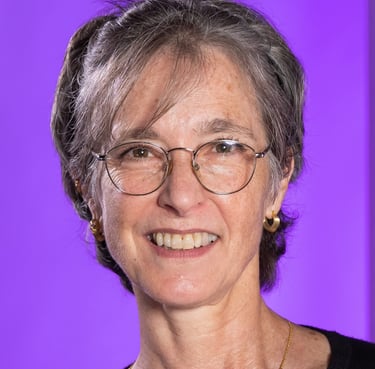

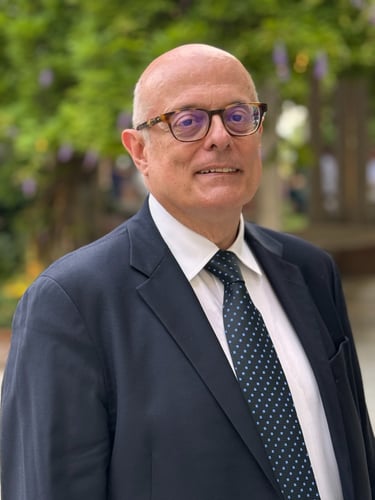

Massimo Tommasoli
is Distinguished Scholar at the Colin Powel School for Civic and Global Leadership, The City College of New York. He has been Director, Global Programmes and Permanent Observer for International IDEA to the United Nations. He previously worked at OECD, Italian MFA and UNESCO. He has fieldwork experience in Colombia and East Africa. He lectured at LUISS University, Rome, and the UN System Staff College, Turin. He authored books and essays on participatory development, aid evaluation, democracy and the UN, conflict and resettlement.
Talk : "Creativity and Bureaucratic Culture in an International Organization an Anthropological Perspective"
Elena Bougleux
is Associate Professor of Cultural Anthropology and Anthropology of Science at the University of Bergamo. She holds a PhD in Physics, which has informed most of her research on lab ethnographies, epistemologies of science, anthropology of corporations, data construction and processing. She has developed research in India, Kazakhstan and Antarctica, involved in multidisciplinary projects with strong applied implications in environmental protection programs. She is part of the Anthropocene Curriculum Project (MPIWG – HKW Berlin) and member of the PhD scientific board on Landscape Studies for Global and Local Challenges.
Talk : "Why this far ? Isolation and Constraints in an Antarctic Research Station "
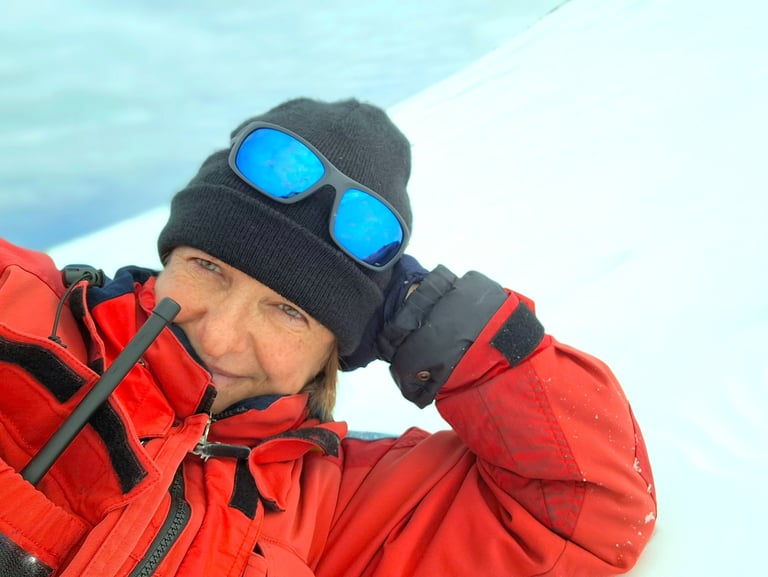

Fabio Malfatti
is an applied anthropologist and the president and co-founder of Centro Ricerche EtnoAntropologiche APS (CREA APS). His work bridges ethnographic research, sustainability, and participatory methodologies in both rural and urban contexts across Italy and Latin America. He has collaborated with academic institutions, local governments, and NGOs on projects involving agroforestry, cultural heritage, and digital tools for qualitative analysis. His approach integrates anthropological methods with collaborative practices to support community-based action and policy design. He is a researcher in the Italian Landscapes in the Anthropocene Research program, led by Andrew S. Mathews of the University of California, Santa Cruz.
Talk : "Making Knowledge Work: Creativity and Ethnographic Practice between Territories and Institutions"
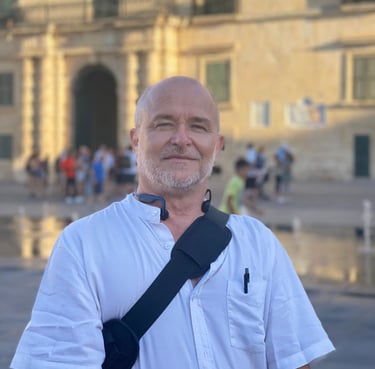



View the abstracts of the key notes here:

University of Bologna - Complex of San Giovanni in Monte
Piazza San Giovanni in Monte 2, Bologna, Italy
Bologna hosts the oldest university of the western world, conventionally dated back to 1088, as it began as an informal initiative by students. It is known as “la Dotta” (“the Learned”) because of the university, “la Rossa” (“the Red”) because of the colour of its buildings and of its characteristic curtains - and because of its political affiliation, some say - and “la Grassa” (“the Fat”) because if its wealthy past and current culinary relevance. Architecturally it mainly reflects its medieval and early modern past, even if only twenty-four of the original about a hundred towers are still standing today.
The complex of San Giovanni in Monte has an interesting history itself: built as a convent (as the attached church and internal cloister can attest), it was then used as a prison until the 1980’s, when it became part of the University. Aula Prodi, once the refectory, holds Renaissance frescoes. A roman origin of this area has been hypothesised, as the building stands on an artificial hill just outside of the walls then and now well inside the city centre.




Don't know where to book your stay? Click on the button to discover the discounted accomodations in Bologna!
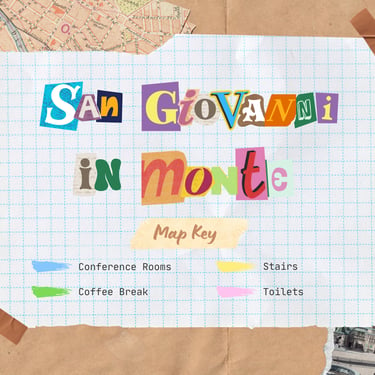

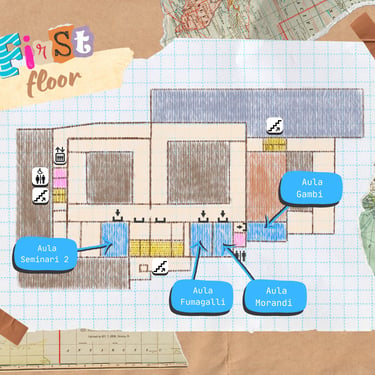


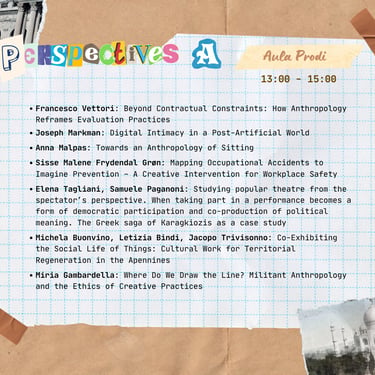
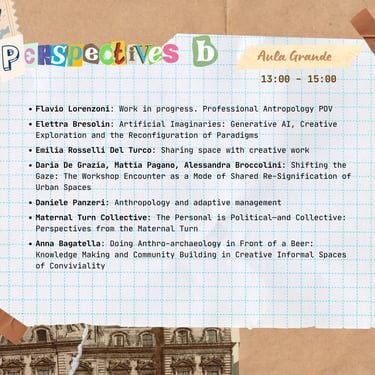
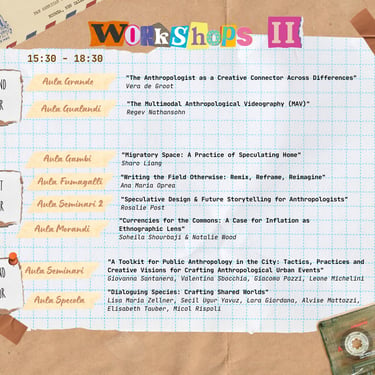
Bologna Guide
created by the Student Organising Committee
Building Map



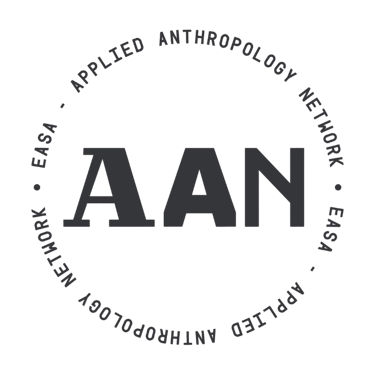

Roberta Bonetti (University of Bologna - Department of History and Cultures)
Federica Tarabusi (University of Bologna - Department of Educational Studies)
Stefania Pontrandolfo (University of Verona - Department of Human Sciences)
Dan Podjed (Founder)
Simon Provoost (AAN Co-Convenor)
Olivia Schneider (AAN Co-Convenor)
Anja Pogladič (AAN Social Media Manager)
Anna Berza (Day 3)
Anthropology Students Organising Committee:
Anna Bagatella, Diego Emiliano Jaramillo Navarro, Rachele Fundone, Mariagiulia Gargiullo, Emma Barontini, Stefania Berehoi, Asia Bonciolini, Leonardo Colaiacovo, Beatrice Colucci, Alice Ferretti, Guido Frana, Rebecca Furesi, Elio Gugliara, Julia Herbst, Maria Nicolina Loi, Miriam Luzi, Giorgia Massolini, Noemi Morano, Clelia Lucia Moretti, Nika Nikousokhan Tayyar, Chiara Orsoni, Marco Pasquali, Valeria Senes, Danijela Stojadinovic, Agnese Tanucci, Anastasia Tramontano, Arianna Verdecchia, Marc Vilaseca Hervás
With the participation of Chiara Scardozzi (DISCI, Unibo) and Francesca Crivellaro (EDU, Unibo).


